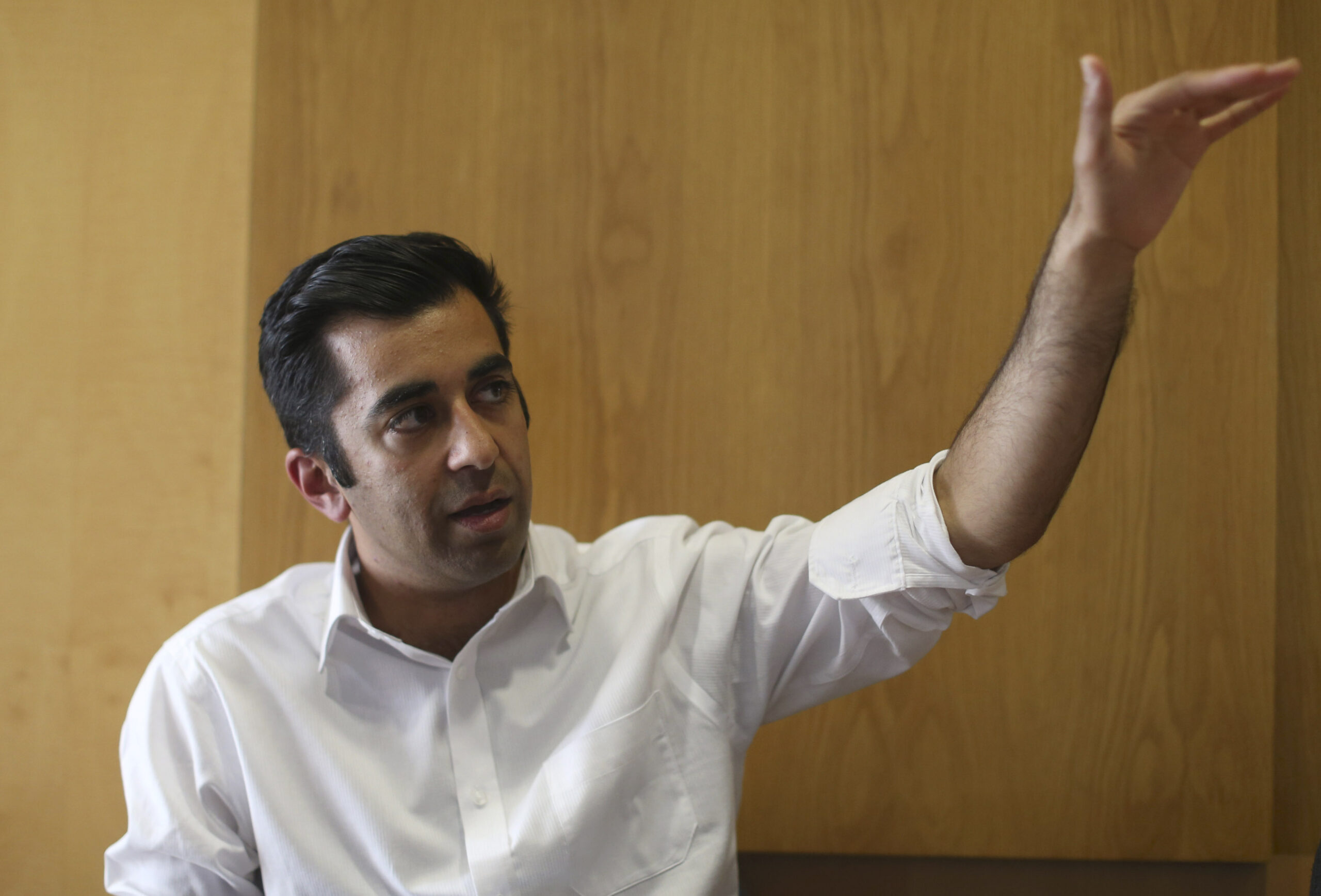After Nicola Sturgeon, the SNP’s Lack of Political Vision Is Total
And it’s Scotland’s working class who will lose out.
by Jonathon Shafi
8 September 2023

This year, for the first time since 2014, the Scottish Programme for Government (PfG) was announced in Holyrood by someone other than Nicola Sturgeon.
Published every year in September, it is meant to set out the actions the Scottish government will take over the coming period.
Given the context swirling around the SNP over recent months – an ongoing police investigation into party finances, a bruising internal election campaign and challenging polling figures – the question of leadership takes on special importance.
Reluctant to properly distance himself from his predecessors, the PfG was seen by many observers as an opportunity for Humza Yousaf to forge his own distinctive vision and political identity.
That brief opening has been emphatically missed, as a government running low on ideas goes through the motions against the backdrop of a series of interlocking and era defining crises.
The programme comes with the gloss attendant to purveyors of political triangulation.
The press trail leading up to the first minister’s speech promised to be “anti-poverty and pro-growth”, in a rehashing of orthodoxy designed to appeal to middle-Scotland.
The corporate lobby has been well organised and very active since the change in SNP leadership. Despite the open season they enjoyed under Nicola Sturgeon, they claim that the Scottish government has not been subservient enough to business. Flailing around for an agenda, the new SNP leadership feel the need to react to this, regardless of their record of near total acquiescence to foreign capital, the omnipresent use of private consultancy firms and the embracing of Tory led sub-national tax havens.
Even the Scottish National Investment Bank, meant to be a countermeasure to the failures of the market, is run by a who’s who of corporate Scotland and has already spent millions on businesses such as TravelNest Ltd. Yousaf, it is worth noting, also has internal dynamics to consider on this front, with the centre-right Kate Forbes only narrowly missing out on winning the leadership election.
In this vein, the first minister recently wrote to Rishi Sunak urging tax cuts for businesses in the renewables and AI sectors. His “New Deal for Business” pledges a £15m plan for “innovation” and “entrepreneurship” echoing the corporate led “National Strategy for Economic Transformation”, a document that is full to bursting with the plethora of neoliberal buzzwords and platitudes.
Meanwhile the National Energy Company, first proposed in 2017 is nowhere to be seen, and the National Care Service has hit the rocks without a sense of where it goes next.
At the same time, promises around national rent controls, seek to shore up the party’s left flank. The Living Rent tenants union deserve much of the credit for this proposal, but also warn they will “be watching” to ensure it happens. Delays to this policy being implemented are not without serious dilemmas, as rents rise in the intervening time. In the latest batch of statistics, homelessness has risen by 9%, with 39,006 applications over the last recorded period, surging above pre-pandemic levels.
The response to the PfG among civic and third sector Scotland reflects a deeper political shift. Once a reservoir of support for the SNP, they lined up to criticise the lack of action.
The STUC puts it in blunt terms: “We cannot pretend this PfG was the radical prospectus Scotland needed to alleviate the cost of living crisis.”
The Poverty Alliance bemoaned the missed opportunity: “We are bitterly disappointed with the scope of actions.”
Magic Breakfast – a charity that provides hungry school children with free breakfasts – were left out in the cold despite providing the government with a fully costed plan. Chief executive Dr Lindsey MacDonald said: “…it was the Scottish government’s last chance to lay out an actionable plan for breakfast provision if they are to meet their commitment before the end of this term. Humza Yousaf has chosen to turn his back on that commitment and break that promise to young Scots.”
In the months leading up to the PfG, third sector leaders called for the new first minister to “move away from headline-grabbing initiatives towards a systemic approach to policymaking on social justice, equality and poverty eradication.” Such a determination is not in evidence.
Major issues were also left unaddressed, like the cuts to fire services, or the need to replace the unfair council tax, as promised in the SNP’s 2007 manifesto. Underlining the lack of vision, the EIS teaching union argued the PfG, “was based mostly on a recycling of previously announced policy – including yet another delay to the much-lauded expansion of universal free school meals.”
In truth, all of this speaks to a more profound malaise.
In place of national political leadership, there is timidity and a lack of direction. Offered the stage and the platform to present a radical agenda, the First Minster has missed an open goal, opting instead to follow in the footsteps of what has come before. And while the chattering classes unpick Yousaf’s tone, style and deportment, it is Scotland’s working class who have the least to gain from such an approach.
Jonathon Shafi is a columnist for Novara Media and socialist campaigner, based in Glasgow. He writes the weekly newsletter ‘Independence Captured’.